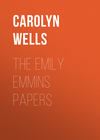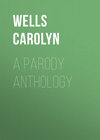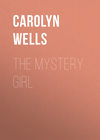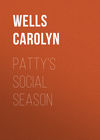Читать книгу: «Vicky Van», страница 11
CHAPTER XVIII
FIBSY DINES OUT
That dinner at Ruth Schuyler's was memorable. And, yet, it was in no way markedly unusual. The service was perfect, as might be expected in that well-ordered household, and the guests were well behaved. Fibsy, thanks to Fleming Stone's thoughtful kindness, was arrayed in the proper dinner garb of a schoolboy, and his immaculate linen and correct jacket seemed to invest him in a mantle of politeness that sat well on his youthful buoyancy and enthusiasm.
I glanced round the table. It was a strange combination of people. Fleming Stone was the sort of man who is at ease anywhere, and I, too, am adaptable by nature. But the Schuyler sisters were very evidently annoyed at the idea of receiving as an equal the youth whom they regarded as a mere street arab.
Fibsy had become a firm friend of Ruth's, but he couldn't seem to like the other ladies, and he with difficulty refrained from showing this.
The Misses Schuyler were impressive in their heavy and elaborate mourning, and to my mind Ruth looked far more appropriately dressed.
She wore a black and white striped chiffon, with touches of black silk, and the effect, with her pale face and fair hair was lovely. A breastknot of valley lilies added to the loveliness, and I allowed my eyes to feast on her fairness. I had thought Ruth was not what could be called a pretty woman, certainly she was not beautiful; but that night her charm appealed to me more strongly than ever, and I concluded that her air of high-bred delicacy and infinite fineness were more to be desired than mere beauty.
Fibsy, too, devoured her with his eyes, though discreetly, and when he thought he was not observed.
Fleming Stone devoted himself to the sisters; probably, I concluded, because he was in their employ, and so owed them his attention.
Ruth wore her beautiful pearls, and referred to the fact, half-apologetically, saying that Mr. Schuyler had liked always to see them on her, and she felt privileged to continue to use them, even in her mourning period.
"You like only poils—pearls, don't you, Mrs. Schuyler?"
Fibsy's slip of pronunciation was due to his slight embarrassment at his novel surroundings, but he valiantly corrected himself and ignored it.
"I like other gems," Ruth replied, "but Mr. Schuyler preferred pearls, and gave me such beauties that I have grown very fond of them."
"I remember, Ruth," said Sarah, reminiscently, "how you used to beg Randolph for sapphires and diamonds instead. You even wanted semi-precious stones—turquoises and topaz. Oh, I remember. But Randolph taught you that pearls were the best taste for a young matron and you grudgingly acquiesced."
"Oh, not grudgingly, Sarah," and Ruth flushed at the reprimand in her sister's voice.
"Yes, grudgingly. Even unwillingly. In fact, all Randolph's decisions you fought until he made you surrender. You know how you wanted gay-colored gowns until he made you see that grays and mauves were better taste."
"Never mind my peccadilloes," said Ruth, lightly. "Let's talk of something less personal."
"Let's talk about the weather," suggested Fibsy, who was not conducting himself on the seen and not heard plan. "The park is fine now. All full o' red an' gold autumn leaves. Have you noticed it, Mrs. Schuyler?"
"Not especially," and Ruth smiled at him, in appreciation of his conversational help. "I must walk over there to-morrow."
"Yes,'m. An' why don't you go for a long motor; ride up Westchester way? The scenery's great!"
"How do you know, have you been there?"
"Not just lately, but I was last fall. Do you remember the big trees just at the turn of the road by—"
But Ruth was not listening to the child. Stone had said something that claimed her attention.
However, Fibsy was unabashed. With no trace of forwardness, but with due belief in his security of position as a guest, he continued to chatter to Ruth, and rarely addressed any one else.
He has something up his sleeve, I thought, for I was beginning to have great faith in the lad's cleverness.
He sat at Ruth's left hand, Stone being in the seat of the honor guest, and as that left me between the two sisters, I was doomed to participate in their chatter. But I was opposite my hostess and could enjoy looking at her in the intervals of conversation.
Suddenly, I chanced to look up and I saw Fibsy's comical little face drawn with grimaces as he sang a snatch of a popular song.
My heart goes twirly-whirly
When I see my pearlie girlie,
With her—
"Now, what is that next line? With her—?"
"With her ring-around-a-rosy curls!" supplemented Ruth, her own face breaking into laughter, as, caught by the infection of Fibsy's waggish gayety, she rounded out the phrase.
"Yes, that's it," said Fibsy, eagerly, "and
Her teeth like little shining pearls,
Oh, she's my queen of all the girls,
My little twirly-whirly, pearlie Girlie!"
Ruth and Fibsy finished the silly little song in concert, and Stone clapped his hands in applause.
Rhoda sniffed and Sarah acidly remarked:
"How can you, Ruth? I wish you'd be a little more dignified."
Quickly the light went out of Ruth's eyes. She looked reproved, and though she didn't resent it, a patient sadness came into her eyes, and I resolved that I would do all I could to get it arranged that she should live apart from the two carping, criticizing sisters.
After dinner we had coffee in the library. Again, Fleming Stone took it upon himself to entertain the Misses Schuyler, and I drifted toward Ruth. She sat down on a sofa and motioned Fibsy to sit beside her. I drew a chair up to them and thanked a kind fate that let us all leave the table at once, dispensing with a more formal tarrying of the men.
After the coffee there were liqueurs. I glanced at Fibsy to see if he accepted a tiny glass from the butler's tray.
He did, and, moreover, he examined the contents with the air of a connoisseur.
"Oo de vee de Dantzic," he remarked, holding up his glass and gazing at the gold flecks in it.
We all smiled at him.
"Your favorite cordial, Terence?" asked Stone, affably.
"Yessir. Don't you love it, Mrs. Schuyler?"
"Yes," she said, and then, "why, no, I don't love it, child. But one gets accustomed to something of the sort."
"But don't you like it better than Cream de mint or Benediction?" he persisted.
Ruth laughed outright. "How do you know those names, you funny boy," she said.
"Read 'em on the big signboards," he returned. "They have the biggest billboards in New York for one of these lickures. I forget which one."
"These are what I like," said Ruth, smiling, as the footman passed a small bowl of sugared rose-leaves and crisp green candied mint leaves. "Take some, Terence. They're better for you than liqueurs. Help yourself."
"They are good," and Fibsy obeyed her. "They taste like goin' into a florist's shop."
"So they do," agreed Ruth, herself taking a goodly portion.
"Rubbish," said Rhoda. "I think these things are silly. Randolph would never allow them."
"Now, Rhoda, there's no harm in a few candies," protested Ruth, and then she changed the subject quickly, for she evaded a passage at arms with the sisters whenever possible.
The talk, however, soon drifted to the never forgotten subject of the murder. The sisters mulled over all they had heard or learned during the day and begged Stone to propound theories or make deductions therefrom.
Stone obeyed, as that was what he was employed for.
"I think Miss Van Allen is masquerading as somebody else," he affirmed. "I believe she is in some house not very far from this neighborhood, under the care of some friend and accompanied and looked after by her maid Julie. I believe she is in touch with all that goes on, not only from the newspapers but by means of some spy system or secret investigation. But the net is drawing round her. I cannot say just how, but I feel sure that we shall yet get her. It was a grievous mischance that I let her escape last night, but I shall have another chance at her, I'm sure."
"And then you'll arrest her," said Rhoda, with a snap of her thin lips.
"I dare say. Lowney tells me the finger prints on the little knife with which Mr. Schuyler was killed are clear and unmistakable, but we have not yet found out whose they are."
"And can you?" said Ruth, anxiously.
"If we find Miss Van Allen," said Stone, "we can at least see if they are her's."
"Pooh!" said Fibsy contemptuously, "why did'n' youse tell me before that you had the claw prints? I kin get Miss Van Allen's all right, all right!"
"How?" said I, for Fibsy had lapsed into the careless speech that meant business.
"Over to her house. Why, they're all over. I've only gotto photygraph some brushes an' things on her dressin' table to get all the prints you want."
"That's true," agreed Stone. "But it won't give us what we want.
Nobody doubts that Miss Van Allen held the knife that stabbed Mr.
Schuyler, and to prove it would be a certain satisfaction. But what we
want is the woman herself."
It was then that I noticed Ruth's maid, Tibbetts, hovering in the hall outside the library door.
"You may go home, Tibbetts," Ruth said to her, kindly. "These gentlemen will stay late and I'll look after them myself."
Tibbetts went away, and Ruth said, explanatorily, "My maid is a treasure. I'd like to have her live here, but she is devoted to her own little roof tree and I let her off whenever possible."
I knew Tibbets had a home over on Second or Third Avenue, and I thought it kind of Ruth to indulge her in this. But after a change of domicile herself perhaps Ruth would arrange differently for her maid. And, too, as Winnie had often told me of Ruth's cleverness and efficiency in looking after herself and her belongings, I well knew she could get along without a maid whenever necessary.
"Did you ever trace that picture in Mr. Schuyler's watch?" Ruth asked, a few moments later.
"Yes," I said. "It was just as we supposed. A little vaudeville actress whom Mr. Schuyler had taken out to supper gave it to him, and he stuck it in his watch case, temporarily. Her name is Dotty Fay and she seemed to know little about Mr. Schuyler and cared less. Merely the toy of an evening, she was to him, and merely a chance that the picture was in his watch the night of his visit to Vicky Van's."
We had come to discuss the personal matters of Randolph Schuyler thus freely, for we were all at one in our search for the truth, and there were no secrets or evasions among us.
Ruth sighed, but I knew her dear face so well now that I realized it was not from personal sorrow, but a general regret that a man of Schuyler's ability and power should have been such a weakling, morally. I knew she had never loved her husband, but she had been a faithful and dutiful wife, and no word or hint of blame had ever escaped her lips regarding him. She had been a martyr, but I hadn't learned this from her. The sisters, though unconsciously, told me much of the deprivation and narrowness of Ruth's life. Schuyler had ruled her with a rod of iron, and she had never rebelled, though at times her patience was nearly worn out.
Later in the evening Fibsy asked for some phonograph music, expressing his great delight in hearing a really fine instrument and good records.
"I doubt if you'll care for our selections," Ruth remarked, as she looked over the cabinet of records. "They're almost all classical or old-fashioned songs."
"I like the classical kind," Fibsy said, endeavoring to be agreeable.
"Please play the gayest you have, though."
But there were few "gay" ones in the collection. Wagner's operas and Beethoven's solemn marches gave forth their noble numbers and Fibsy sat, politely listening.
"No ragtime, I s'pose?" he said, after a particularly depressing fugue resounded its last echoes.
"No," and Ruth glanced at him. "Mr. Schuyler didn't care for rag time—on the phonograph," she added, perhaps remembering Dotty Fay.
We stayed late. Several times Stone proposed our departure, but Ruth urged us to remain longer or began some subject of interest that held us in spite of ourselves. I had never seen her so entertaining. Indeed, I had never before seen her in what might be called a society setting. She was a charming hostess, and the occasion seemed to please her, for there was a pink flush on her cheeks and an added brightness to her gray eyes that convinced me anew of the joy she could take in simple pleasures.
She singled out Fibsy for her especial attentions, and the boy accepted the honor with a gentle grace that astounded me. When talking to her he lost entirely his slang and uncouth diction and behaved as to the manner born. He was chameleonic, I could see, and he unconsciously took color from his surroundings.
And sometimes I caught him gazing at Ruth with a strange expression that mingled amazement and sadness, and I couldn't understand it at all.
Again, I would find Ruth's eyes fixed on me with a beseeching glance that might mean anything or nothing.
As a whole the atmosphere seemed surcharged with a nameless excitement, almost a terror, as if something dire were impending. Once or twice I saw Stone and Terence exchange startled glances, but they rarely looked at each other.
There was something brewing, of that I was sure. But whatever it was it did not affect the Schuyler sisters. They were eager to talk, anxious to hear, but they felt nothing of the undercurrent of mysterious meaning that affected the rest of us.
I was glad when the time came to go. It was very late, nearly midnight, and I marveled to see that Ruth showed no sign of weariness. The sisters had been frankly yawning for some time, but Ruth's eyes were unnaturally bright, and her pale cheeks showed a tiny red spot on either side.
She shook hands nervously and her voice trembled as she said good-night.
Fleming Stone and the boy were moved, I could see that, but they made their adieux without reference to future meeting or further work on the mystery.
We went away, and as we turned the corner, I started to cross the street to go to my home.
"Come into the Van Allen house a few minutes, Calhoun," said Stone, gravely. "I've something to tell you."
We went in at Vicky Van's. Stone's manner was ominous. He and Fibsy both were silent and grave-looking.
We went in at the street door, into the hall and then to the living-room.
Stone and I sat down, and Fibsy darted out to the dining-room, back to the hall and up the stairs, flashing on lights as he went.
In silence Stone lighted a cigar and offered me one, which I took, feeling a strange notion that the end of the world was about to come.
In another moment Fibsy came slowly down stairs, walked into the living-room, where we were, gave one look at Stone, and then threw himself on a divan, buried his face in the cushions and burst into tears. His thin little frame shook with sobs, great, deep, heart-rending, nerve-racking sobs, that made my own heart stand still with fear.
What could it all mean? What ailed the boy?
"Tell me, Stone," I begged, "what is it? What has upset him so?"
"He has found Vicky Van," said Fleming Stone. "And it has broken his heart."
"What do you mean? Don't keep me in this suspense! Where is Vicky?
Upstairs?"
"No," said Stone, "not now."
"Explain, please," I said, beginning to get angry.
"I will," said Stone.
"No!" cried Fibsy, "no, Mr. Stone, let me t-t-tell. W-wait a minute,
I'll tell. Oh, oh, I knew it all day, b-b-but I couldn't believe it!
I wouldn't believe it! Why, Mr. Calhoun, Vicky Van is—is—why, Mrs.
Schuyler is Vicky Van!"
CHAPTER XIX
PROOFS AND MORE PROOFS
"You are absolutely crazy!" I said, laughing, though the laugh choked in my throat, as I looked at Stone. "You see, Fibsy, you're gone dotty over this thing, and you're running round in circles. I know both Mrs. Schuyler and Miss Van Allen, and they've nothing in common. There couldn't be two people more dissimilar."
"That's just it—that's how I know," wailed the boy. "That's how I first caught on. You see—oh, tell him, Mr. Stone."
"The boy is right," said Stone, slowly. "And the—"
"He can't be right! It's impossible!" I fairly shouted, as thoughts came flashing into my mind—dreadful thoughts, appalling thoughts!
Ruth Schuyler and Vicky Van one person! Why, then, Ruth killed—No! a thousand times NO! It couldn't be true! The boy was insane, and Stone was, too. I'd show them their own foolishness.
"Stop a minute, Stone," I said, trying to speak calmly. "You and the boy never knew Vicky Van. You never saw her, except as she ran along the street for a few steps at midnight. And Terence didn't see her then. It's too absurd, this theory of yours! But it startled me, when you sprung it. Now, Fibsy, stop your sobbing and tell me what makes you think this foolish thing, and I'll relieve your mind of any such ideas."
"I don't blame you, Mr. Calhoun," and Fibsy mopped his eyes with his wet handkerchief. He was a strange little figure, in his new clothes, but with his red hair tumbled and his eyes big and swollen with weeping. "I know you can't believe it, but you listen a bit, while I tell Mr. Stone some things. Then you'll see."
"Yes, Terence," said Stone; "go ahead. What about the prints?"
"They prove up," and Fibsy's woe increased afresh. "They ain't no shadder of doubt. The very reason I know they're the same is 'cause they're so unlike. Yes, I'll explain—wait a minute—"
Again a crying spell overwhelmed him, and we waited.
"Now," he said, regaining self-control, "now I've spilled all my tears I'll out with it. The first thing that struck me was the abserlute unlikeness of those two ladies. I mean in their tastes an' ways. Why, fer instance, an' I guess it was jest about the very first thing I noticed, was the magazines. In here, on Miss Van Allen's table, as you can see yourself, is—jest look at 'em! Vogue, Vanity Fair, Life, Cosmopolitan, an' lots of light-weight story magazines. In at Schuylers' house is Atlantic Monthly, Harper's, Century, The Forum, The North American Review, and a lot of other highbrow reading. An' it ain't only that the magazines in here are gayer an' lighter, an' in there heavier an' wiser; but there isn't a single duplicate! Now, Miss Vicky Van likes good readin', you can see from her books an' all, so why don't she take Harper's an' Century? 'Cause she has 'em in her other home—"
"But, wait, child," I cried, getting bewildered; "you don't mean Vicky Van lives sometimes in this house and sometimes in the Schuyler house as its mistress!"
"That's jest what I do mean. I know it sounds like I was batty, but let me tell more. Well, it seemed queer that there shouldn't be any one magazine took in both houses, but, of course, that wasn't no real proof. I only noticed it, an' it set me a thinkin'. Then I sized up their situations. Mrs. Schuyler's dignified an' quiet in her ways, simple in her dress, wears only poils, no other sparklers whatever. Vicky Van's gay of action, likes giddy rags, and adores gorgeous jewelry, even if it ain't the most realest kind. Now, wait—don't interrup' me, Lemme talk it out. 'Cause it's killin' me, an' I gotter get it over with. Well, all Mrs. Schuyler's things—furnicher, I mean—is big an' heavy an' massive, an' terrible expensive. Yes, I know her husband made her have it that way. But never mind that. Vicky Van's furnicher is all gay an' light an' pretty an' dainty colorin' and so forth. And the day the old sister-in-laws was in here they said, 'How Ruth would admire to have things like these! 'Member how she begged Randolph to do up her boodore in wicker an' pink silk?' That's what they said! Oh, well, I got a bug then that the two ladies I'm talkin' about was just the very oppositest I ever did see! Then, another thing was the records. The phonygraft in here is full of light opery and poplar music like that. Not a smell o' fugues and classic stuff. An' in at Schuyler's, as we seen to-night, there's no gay songs, no comic operas, no ragtime."
"But, Terence," I broke in, "that all proves nothing! The Schuylers don't care for ragtime and Vicky Van does. You mustn't distort those plain facts to fit your absurd theory!"
"Yes," he said, his eyes burning as they glared into mine. "An' Mr. Schuyler he wouldn't never let his wife go to the light operas or vodyville, an' she hadn't any records, so how—how, I ask you, comes it that she's so familiar with the song about 'My Pearlie Girlie' that she joined in the singin' of it with me at the dinner table to-night? That's what clinched it. Mrs. Schuyler, she knew that song's well as I did, and she picked it up where I left off and hummed it straight to the end—words and music! How'd she know it, I say?"
"Why, she might have picked that up anywhere. She goes to see friends, I've no doubt, who are not so straight-laced as the Schuylers, and they play light tunes for her."
"Not likely. I've run down her friends, and they're all old fogies like the sister dames or like old man Schuyler himself. The old ladies are nearly sixty and Mr. Schuyler was fifty odd, and all their friends are along about those ages, and Mrs. Schuyler, she ain't got any friends of her own age at all. But, as Vicky Van, she has friends of her own age, yes, an' her own tastes, an' her own ways of life an' livin.' An' she's got the record of 'My Pearlie Girlie.'"
"It's true, Calhoun," said Fleming Stone. "I know it's all incredible, but it's true. I couldn't believe it, myself, when Fibsy hinted it to me—for it's his find—to him belongs all the credit—"
"Credit!" I groaned. "Credit for fastening this lie, this base lie—oh, you are well named Fibsy!—on the best and loveliest woman that ever lived! For it is a lie! Not a word of truth in it. A distorted notion of a crazy brain! A—"
"Hold on, Calhoun," remonstrated Stone, and I dare say I was acting like a madman. "Listen to the rest of this more quietly or take your hat and go home."
Stone spoke firmly, but not angrily, and I sat still.
"Then, here's some more things," Fibsy continued. "I've gone over this house with a eye that sees more'n Mr. Stone's lens, an' it don't magnerfy, neither. I spotted a lot of stuff in the pantry and storeroom. It's all stuff that keeps, you know; little jugs an' pots of fine eatin'—imported table delicacies—that's what they call 'em. Well, an' among 'em was lickures an' things like that. And boxes of candied rose leaves an' salted nuts—oh, all them things. An' that's why I wanted to go to dinner at Mrs. Schuyler's an' see if she liked to eat those things. An' she did! She had the rose leaves an' she had the kind o' lickure that's down in the pantry cupboard in this house. An' she said it was her fav'rite, an' the old girls said she never used to have those things when her husband was runnin' the house—an' oh, dear, can't you see it all?"
"Yes, I see it," said Stone, but I still shook my head doggedly and angrily.
"I don't see it!" I declared. "There's nothing to all this but a pipe dream! Why shouldn't two women like Eau de vie de Dantzic as a liqueur? It's very fashionable—a sort of fad, just now."
"It ain't only this thing or that thing, Mr. Calhoun," said Fibsy, earnestly. "It's the pilin' up of all 'em. An' I ain't through yet. Here's another point. Miss Van Allen, she ain't got any pitchers of nature views—no landscapes nor woodsy dells in this whole house. She jest likes pitchers of people—pretty girls, an' old cavalier gentlemen, an nymps, an' kiddy babies—but all human, you know. Now, Mrs. Schuyler, she don't care anythin' special for nature, neither. I piped up about the beauty scenery out Westchester way an' over in the park, an' it left her cold an' onintrusted. But she has portfolios of world masterpieces, or whatever you call 'em, over to that house, an' they're all figger pieces."
"And her writing desk," prompted Stone.
"Yessir, that checked up, too. You know, Mr. Calhoun, they ain't nothin' more intim'tly pers'nal than a writin' desk. Well, Miss Van Allen's has a certain make of pen, an' a certain number and kind of pencils. An' Mrs. Schuyler, she uses the same identical styles an' numbers."
"And notepaper, I suppose," I flung back, sarcastically.
"No, sir, but that helps prove. The note paper in the two houses is teetumteetotally different! That was planned to be different! Mrs. Schuyler's is a pale gray, plain paper. Miss Van Allen's is light pink, to match her boodore, I s'pose. An' it has that sort of indented frame round it, that's extry fashionable, an' a wiggly gold monogram, oh—quite a big one!"
I well remembered Vicky's stationery, and the boy described it exactly.
"Proves nothing!" I said, contemptuously, but I listened further.
"All right," Fibsy said, wearily pushing back his shock of red hair. "Well, then, how's this? On Mrs. Schuyler's desk the pen wiper is a fancy little contraption, but it's clean-I mean it's never had a pen wiped on it. Miss Van Allen's desk hasn't got any pen wiper. On each desk is a pencil sharpener, of the same sort. On each desk is a little pincushion, with the same size of tiny pins, like she was in the habit of pinnin' bills together or sumpum like that. On each desk the blotter is in the same place and is used the same way. There's a lot of pussonality 'bout the way folks use a blotter. Some uses both sides, some only one side. Some has their blotters all torn an' sorta nibbled round the edges, an' some has 'em neat and trim. Well, the blotters on these two desks is jest alike—"
"But, Fibsy," I cried in triumph, "I've seen the handwriting of these two ladies, over and over again, and they're not a bit alike!"
"I know it," and Fibsy nodded. "But, Mr. Calhoun, did you know that
Miss Van Allen always writes with her left hand?"
"No, and I don't believe she does!"
"Yessir. I went to the bank an' they said so. An' I asked the sewin' woman, an' she said so. An' I asked the caterer people an' they said so. And the inkstand is on the left-hand side of Miss Van Allen's desk."
"All right, then she is left-handed, but that proves nothing!"
"No, sir, Miss Van Allen ain't left-handed. You know she ain't yourself. You'd 'a' noticed it if she had been. But she writes left-handed, 'cause if she didn't she'd write like Mrs. Schuyler!"
"Oh, rubbish!" I began, but Fleming Stone interrupted.
"Wait, Calhoun, don't fly to pieces. All Terence is saying is quite true. I vouch for it. Listen further."
"They ain't no use goin' further," said Fibsy, despondently. "Mr. Calhoun knows I'm right, only he can't bring himself to believe it, an' I don't blame him. Why, even now, he's sizin' up the case an' everything he thinks of proves it an' nothin' disproves it. But anyway, the prints prove it all."
"Prints?" I said, half dazedly.
"Yessir. I photographed a lot o' finger prints in both houses, an' the Headquarters people fixed 'em up for me, magnerfied 'em, you know, an' printed 'em on little cards, an' as you can see, they're all the same."
I glanced at the sheaf of cards the boy had and Fleming Stone took them to scrutinize.
"I got those prints from all sorts of places," Fibsy went on. "Off of the glass bottles and things in the bathrooms and off of the hair brushes and such things, an' off of the envelopes of letters, an' off the chairbacks an' any polished wood surfaces, an' I got lots of 'em in both houses, an' the police people picked out the best an' cleanest an' fixed 'em up, an' there you are!"
They seemed to think this settled the matter. But I would not be convinced. Of course, I'd been told dozens of times that no two people in the world have finger prints alike, but that didn't mean a thing to me. It might be, I told them, that Vicky Van and Ruth Schuyler were friends, that Ruth had withheld this fact, and that—
"No," said Stone, "not friends, but identical—the same woman. And, listen to this. Mrs. Schuyler heard us say this evening that Fibsy could photograph the brushes and such things over here to get Miss Van Allen's finger prints, and what does she do? She sends Tibbetts over to scrub and wipe off those same brushes, also the mirrors, chairbacks and all such possible evidence. A hopeless task—for the woman couldn't eradicate all the prints in the house. And, also, it was too late, for Fibsy had already done his camera work."
"How do you know she did all that?" and I glowered at the detective.
"Because Fibsy just told me he found evidences of this cleaning up, and, too, because Mrs. Schuyler purposely kept us over there longer than we intended to stay. You know how, when we proposed to say good-night, she urged us to stay longer. That was to give her maid more time for the work. Now, Mr. Calhoun, go on with your objections to our conclusions. It helps our theory to answer your refutations."
"Her letters," I mumbled, scarce able to formulate my teeming thoughts. "Vicky Van sent a letter to Ruth Schuyler—"
"Of course, she did. Wrote it herself, with her left hand, and mailed it to her other personality, in order to make the police give up the search. And, too, the letter from Miss Van Allen, found in Randolph Schuyler's desk after his death, was written and placed there by Mrs. Schuyler for us to find."
"Impossible!" I cried. "I won't allow these libels. You'll be saying next that Ruth Schuyler killed her husband!"
"She did," asserted Fleming Stone, gravely. "She did kill him, in her character as Vicky Van. Don't you see it all? Schuyler came here as Somers, never dreaming that Vicky Van was his own wife in disguise. Or, he may have suspected it, and may have come to verify his suspicion. Any way, when she saw and recognized him, whether he knew her or not, she lured him out to the dining room and stabbed him with the caterer's knife."
"Never!" I said. I was not ranting now, I was stunned by the revelations that were coming so thick and fast. I couldn't believe and yet I couldn't doubt. Of one thing I was certain, I would defend Ruth Schuyler to the end of time. I would defend her against Vicky Van—why, if Ruth was Vicky Van—where was this moil to end! I couldn't think coherently. But I suddenly realized that what they told me was true. I realized that all along there were things about Ruth that had reminded me of Vicky. I had never put this into words, never had really sensed it, but I saw now, looking back, that they had much in common.




















